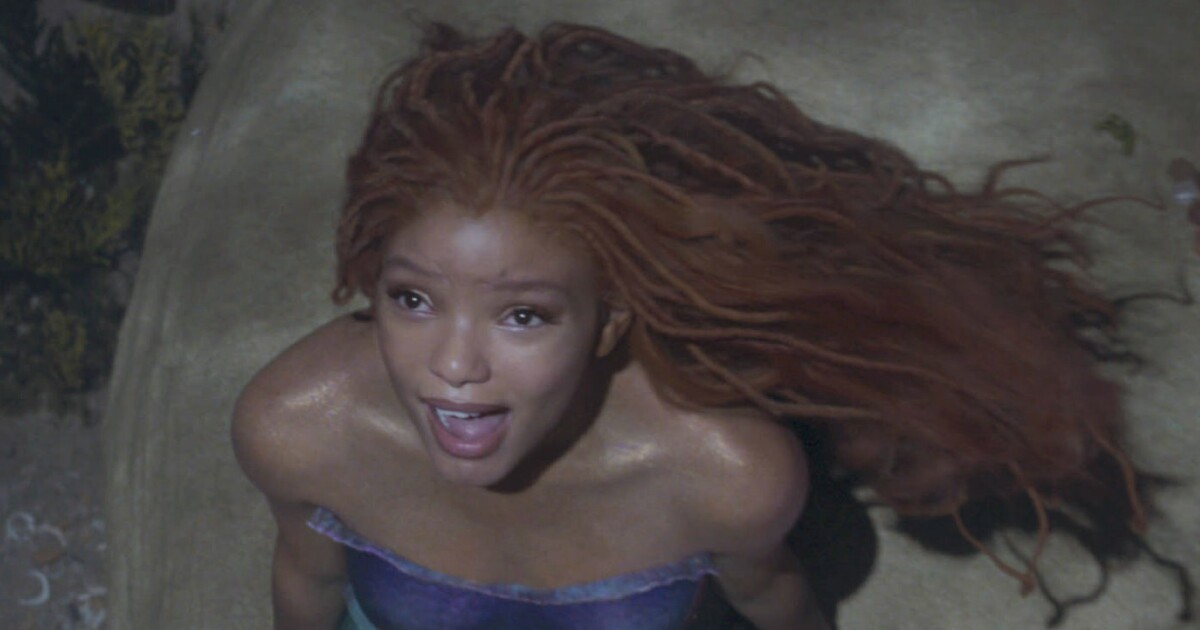

An activist is accusing Disney’s remake of The Little Mermaid of erasing the history of slavery in the Caribbean.
Marcus Ryder, head of external consultancies at the Lenny Henry Centre For Media Diversity and chairman of the Royal Academy of Dramatic Art, has no issue with Disney casting black actress Halle Bailey as Ariel in the film but argues the picture’s racial harmony does damage to the real history of the Caribbean.
FOOD STAMPS: HOW MUCH SNAP RECIPIENTS RECEIVE BY STATE
“A world in which the very idea of race for the main characters seems to be subverted, consciously ignored, and at the same time Black beauty is celebrated, needs to be applauded,” Ryder wrote in a post titled “Disney’s The Little Mermaid, Caribbean Slavery, and Telling the Truth to Children.”
“The casting is beautifully ‘colour blind’ with the prince being White and his mother being Black (he is adopted). At the same time, the Little Mermaid’s father is White while her Mermaid sisters are of various different races and ethnicities. Race as a social construct, as we know it, clearly does not exist underwater.”
However, Ryder argues that children’s movies need to portray the difficult parts of history, and Disney’s remake of The Little Mermaid should have discussed the pain associated with “historical transatlantic slavery.
“The film is set in the Caribbean in the 18th century. It does not specify exactly when, but judging from the ships, clothes, and other references it is during a time of African chattel slavery. And yet there is not a single direct reference to slavery and the islanders live in racial harmony,” Ryder wrote.
“In this setting, I do not think we do our children any [favors] by pretending that slavery didn’t exist. For me, Disney’s preference to try and wish the inconvenient truth away says more about the adult creatives than it does about children’s ability to work through it.”
What Disney did with this project is akin to making a love story about a Jew and gentile in 1940s Germany and ignoring the Holocaust, Ryder argued.
“The 18th century Caribbean is a problematic time to set any children’s story, but that should make it full of creative possibilities as opposed to encouraging historical amnesia,” he wrote.
Disney had multiple opportunities to paint an accurate picture of history instead of whitewashing it, the activist posited.
“For example, they could have set the story in Haiti post-1804. Haiti was the first Caribbean country to throw off the shackles of slavery and most importantly in its constitution of 1805 explicitly denounces the idea of different ‘races’ proclaiming true equality,” Ryder wrote.
“In this scenario, the Little Mermaid could have easily found her prince, while race and slavery could have been gently touched upon without being overbearing or having to show the horrors. A post revolutionary Haiti would have been the perfect setting for an island of racial harmony, and in doing so it would have gently educated children about an important period in world history.”
Adults have a responsibility to depict history accurately to their children, according to Ryder.
CLICK HERE TO READ MORE FROM THE WASHINGTON EXAMINER
“When we think creatively and know our Caribbean history, there are numerous solutions to setting the story in the Caribbean during the time of slavery while neither wanting to erase our history or expose children to the full horrors of chattel slavery,” he wrote.
“Next time I hope Disney can be as adventurous with its storytelling as it was with its casting.”






